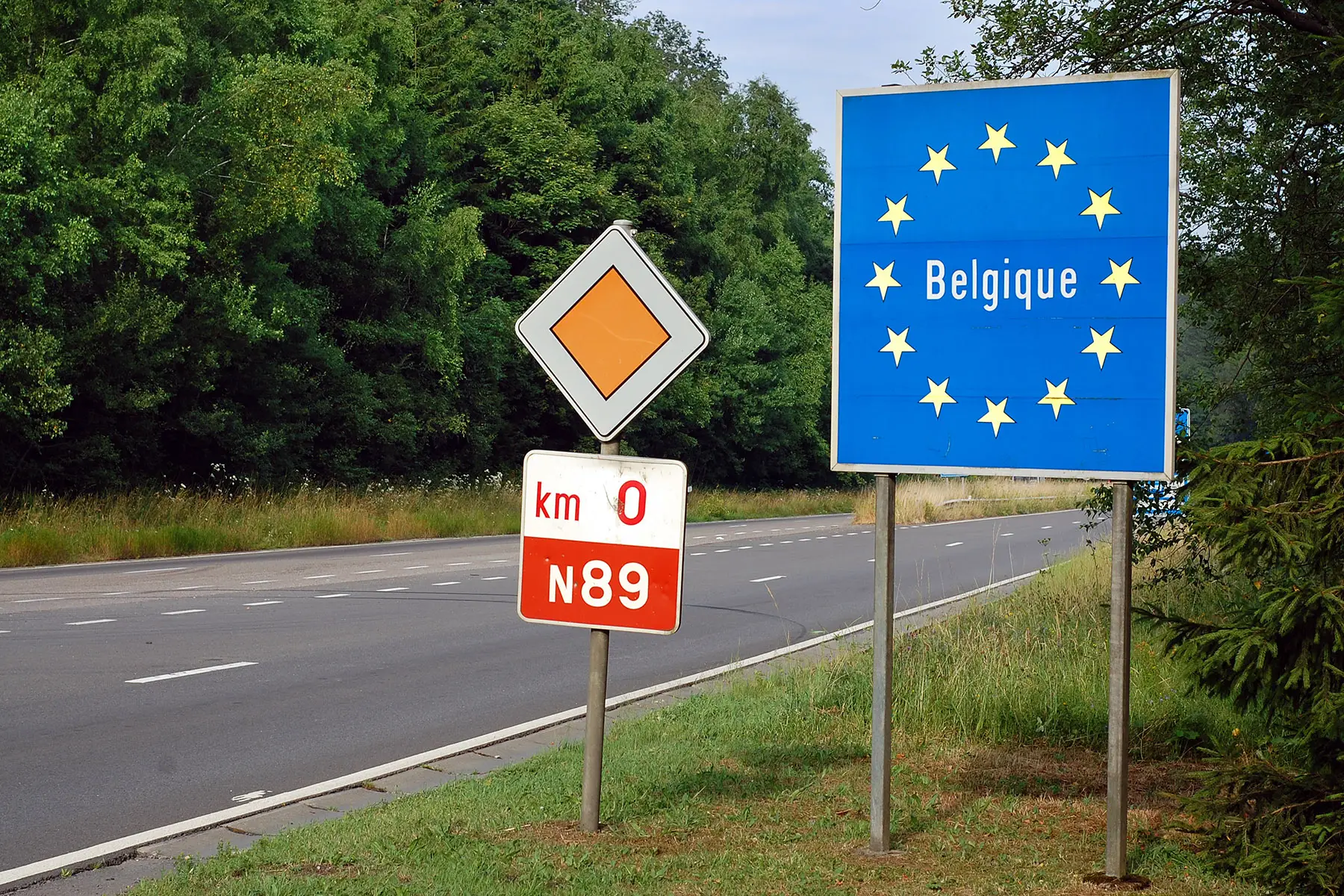Many foreigners find job opportunities in Belgium, especially in major cities like Brussels, where the international business scene and EU institutions create a strong demand for foreign talent. The country’s diverse economy and multilingual workforce make it an attractive destination for expats. Whether in finance, technology, or international organizations, Belgium offers a range of career prospects for skilled professionals.
Start your job search in Belgium by reading the following sections:
Coursera
Boost your career with Coursera. This online learning platform lets individuals and organizations learn new job-relevant skills. They partner with over 275 leading universities and companies to offer flexible, affordable courses. From hands-on projects to certificates and degree programs, start your learning journey today with Coursera.
The job market in Belgium
As of early 2025, Belgium’s job market exhibits robust hiring intentions and growth potential.
The overall unemployment rate remains stable at around 5.6%, while youth unemployment is notably higher, with recent figures indicating rates between 16.1% and 19.9%.
Still, challenges persist, with talent shortages in sectors like technology, healthcare, and engineering. This is exacerbated by an aging population and a mismatch between training programs and market needs.

As in many European countries, job seekers in Belgium face competition, particularly in high-demand industries. However, opportunities are abundant for those with relevant skills and experience.
What jobs are in demand in Belgium?
Belgium’s main industries include:
- Metallurgy and steel production
- Chemicals and pharmaceuticals
- Food processing
- Textiles and glass
Skills shortages have been reported in a number of sectors including:
- Healthcare
- Information Technology (IT)
- Construction
- Engineering
The biggest Belgian companies are:
- Anheuser-Busch
- KBC Group
- Solvay
- UCB
- Proximus
In addition to these, multinational companies with a strong presence in Belgium include General Electric, IBM, Toyota, Microsoft, and Pfizer.
Job vacancies for foreigners in Belgium
Belgium is an attractive destination for expats, with immigrants comprising about 20% of the working-age population. However, their labor market integration remains a challenge.
To address this, regions like Wallonia offer financial incentives, such as bonuses up to €2,000, to encourage job seekers to pursue occupations facing shortages.

Foreign professionals, especially those with multilingual abilities, are highly valued in Belgium’s diverse job market. Sectors such as finance, technology, and engineering actively seek international talent. Proficiency in Dutch, French, or German can enhance job prospects, particularly in international companies based in major cities like Brussels and Antwerp.
In general, Belgium boasts competitive salaries, with the average annual salary around €59,285. However, disparities can exist, and foreign workers may sometimes encounter challenges related to job security and contract types.
How to find jobs in Belgium
Expatica jobs in Belgium
You can find suitable openings on the Expatica jobs board, which has a constantly updated list of jobs across Belgium.
EURES
If you’re from the EU/EFTA, you can look for a job through EURES, the European Job Mobility Portal, which is maintained by the European Commission. As well as looking for work, you can upload your CV and get advice on looking for work in Belgium.
Public job sites
Each region of Belgium has its own public employment office where you can browse job vacancies in Belgium, upload your CV, search for training courses, or get advice on your job search from a consultant online or at a local office:
- Actiris covers the Brussels-Capital Region
- VDAB covers Flanders
- Le Forem covers the Walloon region
- ADG is for the German community in Belgium
- ONEM is the national office of employment

Job websites in Belgium
There are various general and industry-specific job websites in Belgium, including:
- Academic Jobs EU – academic and research jobs
- BrusselsJobs – business, finance, admin, and IT jobs for multilingual workers in Brussels and beyond
- Eurograduate – for graduates in the EU
- Heidrick & Struggles – executive search company
- Jobat
- Learn4good
- LinkedIn Belgium
- Michael Page Belgium
- OnlySalesJob
- Randstad – specializing in project-based or freelance temporary positions.
- StepStone
- Xpatjobs
English-speaking jobs
If you’re in search of an English-speaking job, there are a few dedicated sites that you can check to find the latest job openings:
Recruitment agencies
Whenever possible, sign on with some Belgian recruitment agencies which tend to specialize in different sectors. Look them up in the Belgian Golden Pages. However, make sure they are recognized by the trade federation Federgon.
You’ll also find most of the usual European and international employment agencies in Brussels and other major cities, such as:
Foreign language teaching
To teach English in a school in Belgium, you’ll generally need to have a BA degree and a TEFL certification. If you have a TEFL/TESOL qualification you can look for a job on one of these sites:

You can apply to become an English-language assistant in a state school or college through the British Council, however you need to have an A-level, B1 or equivalent in French. You can also check international schools in Belgium, Belgian universities, or language schools in Belgium to see if anyone if hiring.
Embassies and foreign organizations
Belgium, particularly Brussels, is home to major international organizations that employ thousands of people. This includes NATO and the Council of the European Union, making it a key hub for global diplomacy. Belgium also hosts the World Customs Organization, Eurocontrol, and the International Organization for Migration (IOM).
Check out vacancies at other international agencies and non-governmental organizations (NGOs) based in Belgium in the press in your home country or on the agency websites. You can find the names of all the NGOs in Belgium in the WANGO directory.
Newspapers
You can find job ads in the weekend editions of the main national newspapers. These newspapers also have their own dedicated online jobs pages:
Make the first move: speculative applications
There’s no harm in firing off some speculative applications to companies you’d particularly like to work for. Try looking on the company websites to see if they have a vacancies page or contact details where you can send your resume.
Find companies by searching online at:
- the Belgian Golden Pages (in English)
- business directories like Kompass and Europages
- the Federation of the Belgian Chambers of Commerce which has links to registers of all Belgian companies
Self-employment and freelancing in Belgium
Another option is to set out on your own and either work as a freelancer in Belgium or starting up a Belgian business. Anyone of working age can set up their own business in Belgium, including foreigners, as long as they have the legal right to work and follow the correct procedures.

You can set up as a sole trader or as a limited company in Belgium. The difference being that there is no distinction between personal and business finances as a sole trader, whereas limited companies are distinct legal entities that have separate accounts.
Read more about setting up a business in Belgium and working as a freelancer in our guides on the subjects.
Traineeships, internships, and volunteering in Belgium
University graduates can find EU-based traineeships via the European Commission Traineeships Office (Bureau de Stages); otherwise, you can search for internships and placements on AIESEC (for students and recent graduates in the UK) or IAESTE (for students in science, engineering, and applied arts). Internships can also be found at Globalplacement and Intern Abroad.
For those aged between 17 and 30, you can find volunteer programs at the European Voluntary Service (EVS), where you work abroad for up to 12 months in exchange for board, food, insurance, and a small allowance. Concordia is another organization for volunteer opportunities. For holiday volunteering opportunities, check Workaway.
How do you apply for a job in Belgium?
Once you have found some suitable job openings, you’ll need to know how to put together a Belgian-style CV and cover letter to make sure your application gets the consideration it deserves. Some jobs may go the alternative route of application and personal statement, but the general requirements in terms of content remain the same.
The process for applying for jobs in Belgium is broadly similar to elsewhere in western Europe. You make your application and will then be invited to an interview if selected. The interview process may involve testing and possibly a follow-up interview. Candidates who reach the interview stage will be formally notified whether or not they’ve been successful.
Preparation for Belgian job interviews is not that different from how it is in countries such as the UK or US. Dress smartly, research the company in advance so that you are prepared and have some good questions to ask the interviewer.

You will typically be asked to provide 2–3 professional references, but these won’t be contacted unless you are offered a job.
To find out how to prepare your CV and cover letter, in addition to what to expect in a Belgian job interview, you can read our article on Belgian CVs and interview tips. You can also find useful resume templates on sites such as resume.io.
What are the requirements to find work in Belgium?
1. Do you need a Belgian work visa?
Foreigners who want to work in Belgium may need a work permit or visa, depending on their nationality and job type. EU/EEA and Swiss citizens can work in Belgium without a permit, while non-EU nationals must apply for the appropriate visa or work authorization.
Types of Belgian work permits & visas:
- Single Permit (combining work & residence permit) – for non-EU/EEA nationals working in Belgium for more than 90 days, employers must apply on behalf of the employee.
- Work Permit B – for short-term employment (less than 90 days), usually granted for highly skilled workers, intra-company transfers, or seasonal work
- EU Blue Card – for highly skilled non-EU workers with a job offer, degree, and salary above a set threshold, provides easier mobility within the EU
- Self-Employment Permit – required for non-EU entrepreneurs and freelancers wanting to start a business or work independently in Belgium
2. What are the language requirements to work in Belgium?
There are three official languages in Belgium: Dutch is spoken in the Flemish community in the Flanders region to the north of Belgium; French is spoken in Wallonia to the south of Brussels; and German is spoken in the southeast.
Between 10–20% of the country, especially those in the Brussels-Capital region, are bilingual and speak both French and Dutch. You would most likely be expected to speak the language of the particular region in which you’ll be working. In some cases, mainly in international companies, English may be sufficient.
You can find many language schools in Belgium if you need to improve your language skills.
3. Can you transfer your qualifications to work in Belgium?
If you come from a country signed up to the Bologna Process you will have your educational qualifications recognized in Belgium. Everyone else should contact NARIC (Flanders) or the Education section of the Ministère de la Fédération Wallonie-Bruxelles (Wallonia) to get foreign educational certificates recognized in Belgium.

Certain professions require your qualifications, training, and experience, to be officially recognized or regulated before you can work in Belgium. Check the European Commission website to find out if you will be working in a regulated profession in Belgium.
If you need to acquire a new qualification before moving to Belgium, there are several ways to do this. You can study in Belgium for a diploma or degree, or pick up new job-related skills and certificates from an online learning platform such as Coursera.
4. You will need a tax and social security number
You will need a tax identification number, also known as the National Register Number or National Number, before you can legally start working or set up your own business in Belgium. This is a unique number that is usually issued when you move to Belgium.
Financial support while looking for a job in Belgium
Belgian residents can claim unemployment benefits while they are looking for work. However, there are conditions attached to this including having worked for a minimum number of days (between 312 and 624) within a specific period (between 21-42 months) depending on your age.
This means that you won’t be eligible for unemployment support when you first move to Belgium if you don’t have a job.
Employment training opportunities are available by region, although eligibility varies according to circumstances. You can find out more information on the VDAB website for Flanders, the Le Forem website for Wallonia and the Bruxelles-Formation website for the Brussels-Capital Region.
Starting your job in Belgium: important questions
Once you have found and started a job in Belgium, you will probably initially be on a probation period. This could last anywhere between 2–6 months, depending on your job.

Your employer should enroll you for certain benefits and protections once you start. This should include social security benefits, statutory pensions entitlements and worker’s compensation insurance.
Depending on your employer, you may also be offered the chance to opt in on a company pension to top up your state pension benefit.
Useful resources
- VDAB – employment website for the Flanders region
- Le Forem – employment website for the Wallonia region
- Brussels Economy and Employment – employment website for the Brussels-Capital region
- ADG – employment website for the German-speaking region
- ONEM – Belgian national office for employment
- EURES – EU job search portal









